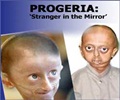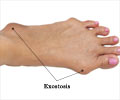About
An educational process that seeks to assist affected individuals and other individuals at risk of getting an inherited condition to understand the nature of the genetic disorder, its transmission and the options open to them in management and family planning - ( Kelly, 1998).
Sheldon Reed proposed the terminology, "Genetic counseling" in 1947, In the response to the increasing knowledge of the role of genetics in health and disease. Genetic counseling aims to facilitate the exchange of Information regarding a person's genetic legacy.
It attempts to:
- Accurately diagnose a disorder
- Assess the risk of recurrence in the concerned family member and relatives.
- Provides alternatives for decision - making.
- Provide support groups that will help family members cope with the recurrence of a disorder.
Purpose
With approximately 2,000 genes identified and about 5, 000 disorders caused by genetic defects, genetic counseling is important in the medical discipline of obstetrics. Genetic counselors educated in the medical and psycho social aspects of genetic disease, can simplify and convey complex information to help people make important life decisions.
Currently there are no cures for genetic disease conditions. However this is likely to Change in the next few years.
Genetic counselors work with people concerned about the risk of an inherited disease. ( e.g. Huntington's disease ). The counselor does not prevent the incidence of a disease in a family, but can assess the risk for certain hereditary disease and offer guidance.
Many couples seek genetic counseling because of a family history of Known genetic disorders, infertility, miscarriage , still births or early infant Mortality. Other reasons for participations may be occupational hazards, factors that expose a potential parent to health risks. Such as radiation, Chemicals / drugs. Any family history of mental retardation can be of concern as is a strong family history of heart disease at an early age.
Recent statistics show a 3% chance of delivering a baby with birth defects. An additional 2% chance of having a baby with Down syndrome is present for women over 35 years and older women getting pregnant.
Medical history / family pedigree and investigations
An important aspect of genetic counseling sessions is the compilation of family Pedigree or medical history. To accurately assess the risk of inherited disease, Information on three successive generations including health status or cause of death is usually needed. Before or after this pedigree is completed, certain genetic tests are performed using DNA analysis. X - ray, ultrasound scans, urine analysis , skin biopsy and physical evaluation.
For a pregnant woman, prenatal diagnosis can be made using amniocenteris and Chorionic villi sampling. For lethal recessive disorders, preliminary screening tests for metabolic diseases, as well as alpha - fetoprotein ( AFP ) can be done to screen certain birth defects such as neural - tube defects (spina bifida, anencephaly).
Where and when to Employ Genetic Counseling.


















